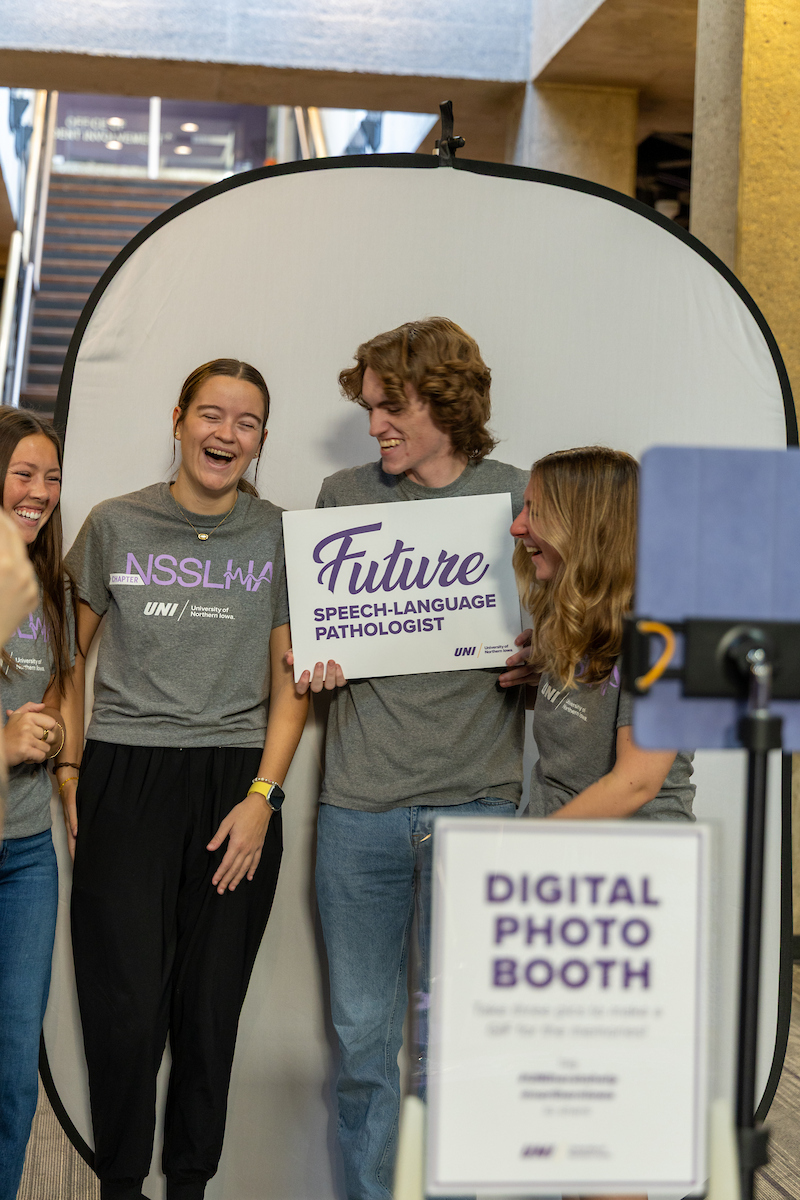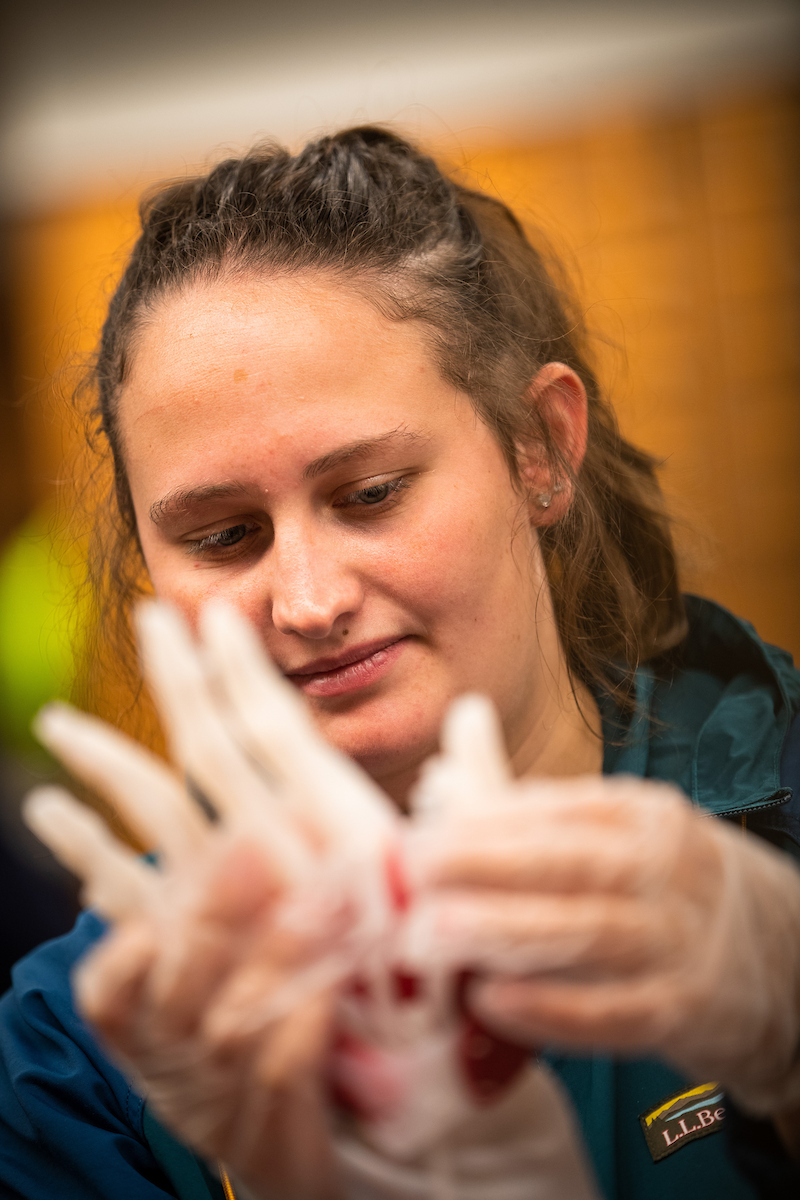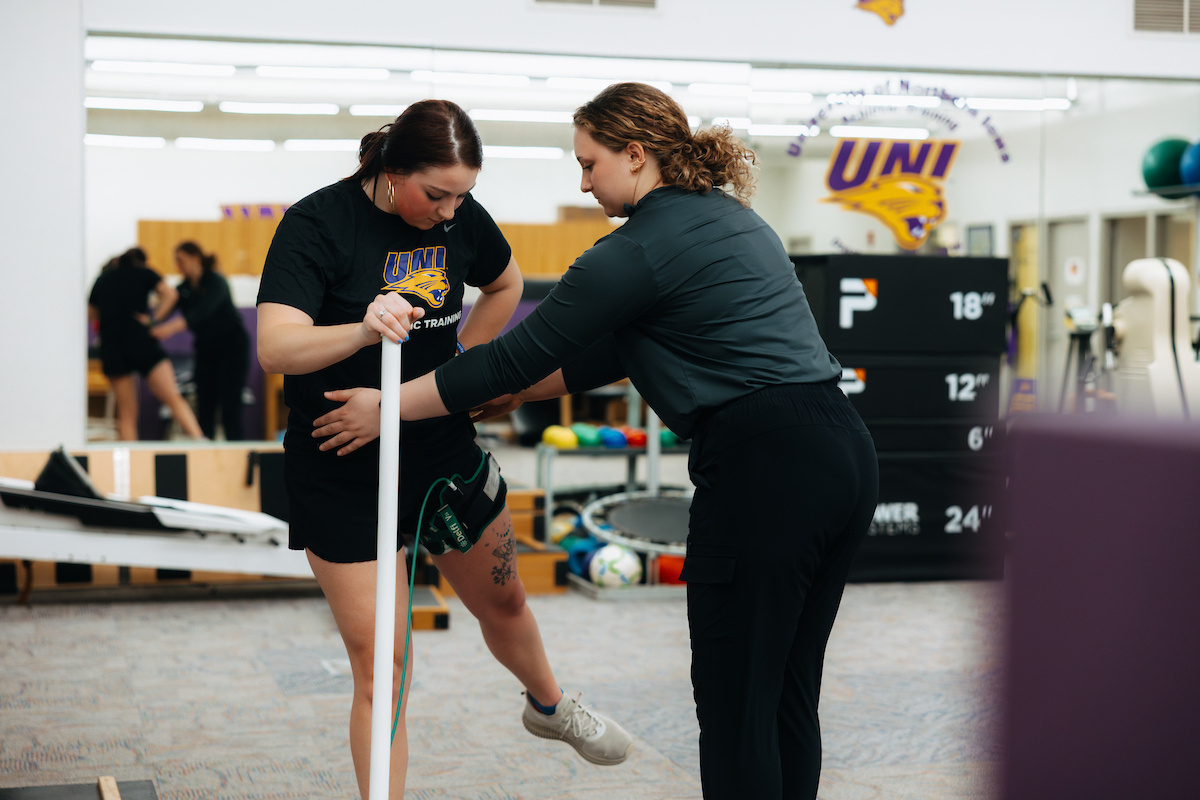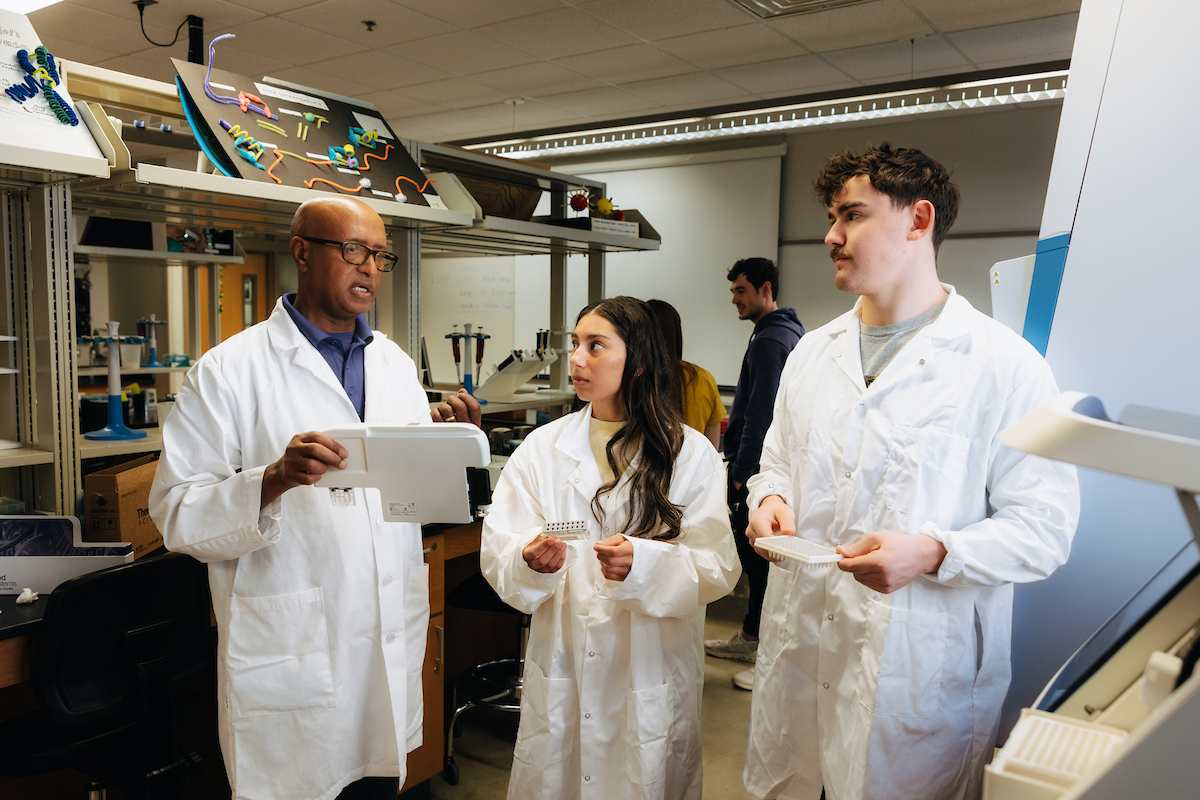Health careers you may not have heard of (and how to land one!)
Health careers you may not have heard of (and how to land one!)
If you know you want to help others maintain or improve their well-being, there are many choices for professions. We’ve all heard of doctors and nurses, but the health care field is so much broader than that. Here are some health careers that will allow you to care for patients in a fulfilling way while maintaining a strong salary.
Speech language pathologist
A speech language pathologist can work with people of all ages who may have difficulty speaking or swallowing due to a neurological condition, developmental disorder or sudden injury. If you pursue this health care career, you may work in a school setting, private practice, hospital or long-term care facility to diagnose and treat speech and swallowing conditions.
In the next several years, this field is on track to grow much faster than the average career, based on data from the Bureau of Labor Statistics. The high pay coincides with this demand, with a median annual salary of more than $95,000.
To become an SLP, start with a bachelor’s degree in communication sciences and disorders. You will then need to pursue a master’s in speech language pathology. One of the University of Northern Iowa’s unique offerings to future speech language pathologists is the Roy Eblen Speech & Hearing Clinic. This clinic allows students to gain real experience with real clients under the supervision of practicing speech language pathologists. It’s one of the reasons the undergraduate program has a nearly 100% grad placement rate and 100% employment rate!

Audiologist
An audiologist takes care of patients experiencing hearing, balance or other ear problems. The severity of a hearing problem can vary widely. Sometimes treatment may be as simple as getting rid of ear wax, while other times it may necessitate hearing aids. Audiologists work with a variety of other health care professionals to ensure their patients are being properly examined, diagnosed, treated and educated.
While most audiologists work in a health care setting, some work at schools. This is another profession that is growing much faster than average. This profession’s median salary is currently more than $92,000.
The road to becoming an audiologist starts with a bachelor’s degree. UNI offers a pre-audiology track for those studying communication disorders. You’ll then need to obtain a doctor of audiology degree. Future audiologists are also able to work under practicing audiologists in the Roy Eblen Speech & Hearing Clinic at the University of Northern Iowa. This preparation allows students to gain experience seeing real client challenges and understand treatment options thanks to the professionals they are working under.
Genetic counselor
If you love learning about genetics, you might want to become a genetic counselor. This health care career involves studying family health history and determining the risk of an inherited condition such as a birth defect. Genetic counselors also support patients who may be struggling with the impacts of a genetic disease and advocate for genetic testing to be covered by insurance.
If you’re in this line of work, you may be employed at a hospital, university, private practice or lab. With an estimated 9% growth over the next several years, there are plenty of opportunities in this field. Genetic counselors earn a median salary of nearly $99,000.
To become a genetic counselor, you’ll need to start with a biology degree before going on to obtain a Master of Science in genetic counseling from an accredited program. Because these master’s programs are uncommon, it’s important to carefully choose where you’ll get your undergraduate degree. UNI is known for providing undergraduate students with research experience, including genetics research, helping you build a resume that stands out before you even earn your bachelor’s degree.
Forensic science technician

If you’re interested in a career that only requires a bachelor’s degree and you love health science but would rather work behind the scenes, you might consider becoming a forensic science technician. If you’ve ever watched TV shows like CSI and thought “I could do that,” you might be onto something – as long as you love lab work, solving puzzles and paying close attention to detail.
These individuals work on crime scenes and perform analysis in labs to help law enforcement solve cases. They work with DNA and handle evidence with care to find answers.
Although they don’t work in traditional health care settings, forensic science techs use some of the same skills as traditional health care workers. They also frequently collaborate with medical professionals.
Job security and opportunity is strong for those who are interested in this profession. The median salary for forensic science technicians is more than $67,000, and the demand for them is growing at a rate that is much faster than average.
Most forensic science technicians have a bachelor’s degree in chemistry or biochemistry. No matter what direction you go at UNI, you can expect to get research experience that will set you up for on-the-job success. Many of our students even co-author publications before they graduate!
Athletic trainer
If you have a passion for sports and science, you might find your perfect fit as an athletic trainer. These health care professionals are specifically concerned with muscle and bone problems and work to diagnose, treat and prevent injuries and illness. You often see them first on the scene after someone is injured in a sport. Not only do they work closely with doctors and physical therapists but they may also collaborate with teams and coaches.
Business is booming if you’re an athletic trainer, as the profession is growing by 11% over the next several years. These professionals also make a median salary of more than $60,000. You can find athletic trainers working with people of all ages. They can be employed by hospitals, schools or professional sports organizations.

Typically, you will need a master’s degree to work as an athletic trainer. UNI offers a kinesiology: pre-athletic training major at the undergraduate level as well as a Master of Athletic Training, which is the first program in Iowa to be Commission on Accreditation of Athletic Training Education accredited.
Occupational therapist
If you’re passionate about seeing those with injuries or disabilities reach their goals, you would make a great occupational therapist. OTs help patients complete daily tasks that may be more challenging following a change in health. These can range from getting dressed, teeth brushing, driving and more. If you want to work as an occupational therapist, you might work at a hospital, school or outpatient clinic. However, you should also expect to meet your patients in the spaces where they perform the tasks you are helping them with, such as in their homes or workplaces.
Sometimes people confuse occupational therapists with physical therapists, but these are two distinct professions. Physical therapists work with their patients on mobility, strength and range of motion overall, while OTs work on specific tasks.
The median salary for an occupational therapist is more than $98,000. The profession is also experiencing strong growth currently, on track to have more than 10,000 open positions each year for the next several years.
Becoming an occupational therapist means you’ll need a master’s degree. UNI offers a pre-professional track just for occupational therapists. You might choose to major in biology or kinesiology: pre health. There is also a Pre-OT Club to help you connect with students who are interested in the same health care careers.
Medical lab technician

Becoming a medical lab technician is another great option if you’d like to work in health care but only want to obtain a bachelor’s degree. If you can’t get enough of lab work, you’ll love this option! These are the individuals who test your blood to make sure you’re healthy. They will talk through testing procedures with patients, ensure quality samples, pass results onto doctors, store medical records and more.
Usually, those with this job work in hospitals or medical labs. With a median salary of nearly $62,000, you can expect strong earning potential as a medical lab tech. Projections from the Bureau of Labor Statistics estimate that nearly 23,000 of these jobs in health care will become open every year for the next several years.
Most commonly, medical lab technicians have a bachelor’s degree, often in biology. UNI has a special pathway for those interested in this profession: the medical lab sciences 3+1 major for those studying biology. The program has an impressive 100% job placement rate!
Epidemiologist
The need for epidemiologists has always been critical, but it’s been highly publicized in recent years in the wake of COVID-19. Epidemiologists have a unique role to play in health care, as they help assess how diseases spread and find ways to slow them down. They are health educators who may work in hospitals, local governments, colleges, health insurance companies, pharmaceutical companies or other health organizations. They are experts in data analysis, statistics and research.
It’s clear to see why this profession is growing much faster than average. There is also strong earning potential for those with this career, with a median salary of nearly $84,000.
If you’re interested in becoming an epidemiologist, you’ll probably need a master’s degree. At the undergraduate level, a Bachelor of Arts in Public Health will set you up for success, and UNI is the only regent university in the state of Iowa to offer a four-year public health program! You may go on to get a Master of Arts in Public Health before becoming an epidemiologist.
Long-term care administrator
If you have a passion for the aging population, working as a long-term care administrator will allow you to turn that passion into action. Long-term care administrators oversee staff, make sure the facility is compliant, design budgets and represent the facility to residents and their families. It is a great way to make a difference with a population that can all too often be overlooked.
The demand for those who want to work with the aging population is growing incredibly fast, as the aging population itself grows incredibly fast. The Bureau of Labor Statistics puts all medical and health services managers, including long-term care administrators, together, and estimates this field will grow 23% by 2034. It pays off big time, with a median salary of nearly $118,000!
The best way to prepare to work with the aging population is to study aging. That’s why you’ll want a gerontology degree. UNI offers the only four-year degree in the field in Iowa, and there is even a long-term care track that includes an extensive internship and prepares you to sit for boards to obtain state licensure. With opportunities like the Dementia Simulation House, which is one of the first of its kind in the United States, you’ll have a strong resume as a UNI grad that will prepare you for the real world of caring for aging adults. After earning your undergraduate degree, you may also want to obtain a Master in Health Care Administration.
Take the next step toward a health career at UNI
No matter which one of these unique health careers interests you, the University of Northern Iowa is a great place to start. With small class sizes, you’ll work closely with faculty members who will train you to provide competent, compassionate care your first day on the job after graduation. Whether you’re studying gerontology or biology, UNI is known for providing hands-on experiences that make your resume stand out to potential employers.
Learn more about all of nursing and health degrees by visiting, uni.edu/degrees/nursing-health.
As Iowa's only regional comprehensive university, we are designed to provide critical coursework with real, practical fieldwork.
Real, relevant academic excellence for a world that expects future-ready graduates.
- 94% of UNI grads find success within six months of graduation.
- UNI undergraduate students get research experience as early as freshman year.
- UNI has the only dementia simulation taking place in a whole house in the state.
- UNI is ranked a top regional public university by U.S. News & World Report.




